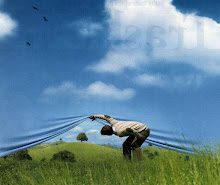1. A kingfisher.
2. A mythical bird, identified with the kingfisher, that was fabled to nest at sea about the time of the winter solstice and to calm the waves during incubation.
adjective:
1. Calm; quiet; peaceful; undisturbed; happy; as, "deep, halcyon repose."
2. Marked by peace and prosperity; as, "halcyon years."
Part III of III
This experiment is not constructed to show how little Descartes could get from spray painting his apple barrel “infallible apples” and tossing all the fallible ones out, it is constructed to cause sympathy for a creature capable only of thinking to itself for an eternity. To be so alone, suspending judgment not for humility of knowledge, but for want of and inability to access it, is a tragedy worthy of plays. This experiment proves how lucky we are even to have fallible tools.
The cogito would scoff, however, if it were given tools bound to mislead, as many skeptics would suggest they do. We cannot accept a toolbox full of instruments ill-suited to our task. In this case, despite, I hold no doubt whatsoever that the cogito would leap (metaphor) wholeheartedly at the chance to play with tools that might show it anything at all outside itself, even with the hefty provision that it will be subject to constant and likely failure to ascertain the truth. This lot—the cogito’s acceptance of sensory input despite severe consequences for truth, is very much worse than our actual state of affairs.
We have a fallible interface. What is filtered through the senses must be processed by the mind, which even from birth is prefigured to accept information in a responsive way—and without reflection, those responses will harm our access to knowledge. Throughout our lives we construct vast networks of semiologies to accompany natural responses, further detaching ourselves from possible, sober, objective truths. The combination of the senses and the mind, without training and the invocation of reason will inevitably produce conclusions far off the mark of knowledge.
Yet the cogito will accept the proposal of the senses. It is a clever creature, and it knows a bargain when it can see one—it hastily deduces from these provisions that even with the enormous amount of blundering that could occur from perception to knowledge, knowledge is possible. It knows this because it has spent its pathetic life both imagining and doubting—and its own separation from the truth rests with input. In fact, its tragedy is not in the lack of infallible truths, but in the lack of input. Like a blooming flower, it soars from the boredom of its abject (albeit infallible-truth populated) existence, in courage, with fearful but definite excitement, into a realm of fallible perception.
This is where we find ourselves. As much as we would like to deduce the eternal truths of the universe by criterions and introspection alone, it is incredibly impossible. Our brains are powerful enough both to imagine worlds that do not exist, and destroy reflections of ones that do. The newly-perceptive cogito does not enter the world a credulous thing (albeit overwhelmingly enraptured), but neither does it enter the world subject to solipsistic doubt—not only to preserve this new and wonderful world as an existing entity, but because all of its new senses suggest that it has no sensible reason to doubt some kind of objective reality, and much more. Given input, its tragedy becomes fuel for curiosity, and the real pursuit of knowledge begins.
We ought not reflect or depend on floating cogitos to save our ability to know. We ought reflect on them to cherish our ability to sense in the first place—and while we may (and should) be dubious of the correctness of what these senses tell us, self-reflection (as the cogito well knows) is the key to seeking knowledge. Our friend the cogito becomes a master of its newly formed senses, analyzing each one carefully and the many ways in which they can go wrong. Where there is reason to doubt, it does, and where not, it enjoys the comfort of reason paired with input—which can, with fallible humility, discover knowledge enough to fill planets with barrels exempt from Descartes stamp of approval. Input is as much as gift as reason.
